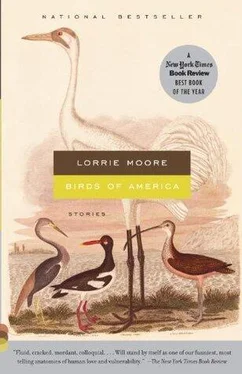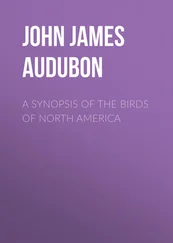“What are you looking at?”
“Nothing,” says Mack, then adds absently, “a boy.”
“Really?” says Quilty.
Mack drives fast down through the small towns of the Delta: Eudora, Eupora, Tallula — the poorest ones with names like Hollywood, Banks, Rich. In each of them, a Baptist church is nestled up against a bait shop or a Tina’s Touch of Class Cocktails. The strawy weeds are tall as people, and the cotton puffs here are planted in soils grown sandy, near shacks and burned-out cars, a cottonseed-oil factory towering over the fields, the closest hamburger at a Hardee’s four miles away. Sometimes the cotton fields look like snow. Mack notices the broken-down signs: EAT MAID-RITE EATS or CAN’T BEAT DICK’S MEAT. They are both innocent and old, that peculiar mix, like a baby that looks like a grandmother, or a grandmother that looks like a girl. He and Quilty eat lunch and dinner at places that serve hush puppies and batter-fried pickles; it reminds Mack of his aunt’s cooking. The air thickens and grows warm. Sinclair brontosauruses and old-style Coke signs protrude from the road stops and gas stations, and then, closer to Baton Rouge, antique stores sell the same kinds of old Coke signs.
“Recycling,” says Mack.
“Everyone’s recycling,” says Quilty.
“Someone told me once”—Mack is thinking of Annie now—“that we are all made from stars, that every atom in our bodies was at one time the atom of a star.”
“And you believed them?” Quilty hoots.
“Fuck you,” says Mack.
“I mean, in between, we were probably also some cheese at a sorority tea. Our ancestral relationship to stars!” says Quilty, now far away, making his point before some judge. “It’s the biological equivalent of hearsay.”
They stay in an antebellum mansion with a canopy bed. They sit beneath the canopy and play Trivial Pursuit.
Mack once again reads aloud his own questions. “Who was George Bush referring to when reminiscing: ‘We’ve had some triumphs; we’ve made some mistakes; we’ve had some sex’?”
Mack stares. The canopy bed looks psychotic. Out the window he sees a sign across the street that says SPACE FOR LEASE AT ABSOLUTELY YOGURT. Next to it, a large white woman is hitting a small black dog with a shopping bag. What is wrong with this country? He turns the card over and looks. “Ronald Reagan,” he says. He has taken to cheating like this.
“Is that your answer?” asks Quilty.
“Yes.”
“Well, you’re probably right,” says Quilty, who often knows the answer before Mack has read it to him. Mack stares at the bed again, its canopy like the headdress the Duchess wore in Alice in Wonderland . His aunt would sometimes read that book to him, and it always made him feel queasy and confused.
On the nightstand, there are sachets of peach and apricot pits, the sickly sweet smell of a cancer ward. Everything here now in this room reminds him of his aunt.
“What former Pittsburgh Pirates slugger was the only player inducted into the Baseball Hall of Fame in 1988?” Mack reads. It is Quilty’s turn.
“I’ve landed on the damn sports category?”
“Yup. What’s your answer?”
“Linda Ronstadt. She was in The Pirates of Penzance . I know it went to Pittsburgh. I’m just not sure about the Hall of Fame part.”
Mack is quiet.
“Am I right?”
“No.”
“Well, you never used to do that — land me on those sports questions. Now you’re getting difficult.”
“Yup,” says Mack.
The next morning, they go to a Coca-Cola museum, which the South seems to be full of. “You’d think Coca-Cola was a national treasure,” Mack says.
“It’s not?” says Quilty.
Individual states, Georgia and Mississippi and whichever else, are all competing for claims: first served here, first bottled there — first thirst, first burst — it is one big corporate battle of the bands. There is a strange kind of refuge from this to be found in driving through yet another cemetery, this one at Vicksburg, and so they do it, but quickly, keeping the trip moving so they will not feel, as they might have in Tapston, the irretrievable loss of each afternoon, the encroaching darkness, each improvised day over with at last — only to start up again, in the morning, oppressively identical, a checker in a game of checkers, or a joke in a book of jokes.
“They seem to have all this organized by state,” says Mack, looking out over the Vicksburg grounds, the rolling green dotted as if with aspirins. He looks back at the park map, which he has spread over the steering wheel. Here he is: back in the Bone Zone.
“Well, let’s go to the Indiana part,” says Quilty, “and praise the Hoosier dead.”
“Okay,” says Mack, and when he comes upon a single small stone that says Indiana —not the proper section at all — he slows down and says, “Here’s the section,” so that Quilty can roll down the window and shout, “Praise the Hoosier dead!” There are kindnesses one can perform for a blind man more easily than for the sighted.
Guapo barks and Mack lets loose with an incongruous rebel yell.
“Whose side are you on?” scolds Quilty, rolling his window back up. “Let’s get out of here. It’s too hot.”
They drive some distance out of the park and then stop at the Civil War Museum they saw advertised the day before.
“Is this a fifty?” Quilty whispers, thrusting a bill toward Mack as they approach the entrance cashier.
“No, it’s a twenty.”
“Find me a fifty. Is this a fifty?”
“Yeah, that’s a fifty.”
Quilty thrusts the fifty toward the cashier. “Excuse me,” he says in a loud voice. “Do you have change for a great American general?”
“Do believe I do,” says the cashier, who chuckles a bit, taking the fifty and lifting up the drawer to his register. “You Yankees are always liking to do that.”
Inside, the place is dark and cool and lined with glass display cases and mannequins in uniforms. There are photographs of soldiers and nurses and “President and Mrs. Davis.” Because almost everything is behind glass and cannot be touched, Quilty grows bored. “ ‘The city of Vicksburg,’ ” Mack reads aloud, “ ‘forced to surrender to Grant on the Fourth of July, refused to celebrate Independence Day again until 1971.’ ”
“When no one cared anymore,” adds Quilty. “I like a place with a strong sense of grudge — which they, of course, call ‘a keen acquaintance with history.’ ” He clears his throat. “But let’s get on to New Orleans. I also like a place that doesn’t give a shit.”
In a restaurant overlooking the river, they eat yet more hush puppies and catfish. Guapo, unleashed, runs up and down the riverbank like a mad creature.
In the dusk, they head south, toward the Natchez Trace, through Port Gibson: “TOO BEAUTIFUL TO BURN”—ULYSSES S. GRANT, says the WELCOME sign. Quilty is dozing. It is getting dark, and the road isn’t wide, but Mack passes all the slow-moving cars: an old VW bus (northern winters have eliminated these in Tapston), a red pickup piled with hay, a Plymouth Duster full of deaf people signing in a fantastic dance of hands. The light is on inside the Duster, and Mack pulls up alongside, watching. Everyone is talking at once — fingers flying, chopping, stretching the air, twining, pointing, touching. It is astonishing and beautiful. If only Quilty weren’t blind, thinks Mack. If only Quilty weren’t blind, he would really like being deaf.
There are, in New Orleans, all manner of oysters Rockefeller. There is the kind with the spinach chopped long and coarse like seaweed, scabs of bacon in a patch on top. Then there is the kind with the spinach moussed to a bright lime and dolloped onto the shell like algae. There is the kind with spinach leaves laid limply off the edge like socks. There is the kind with cheese. There is the kind without. There is even the kind with tofu.
Читать дальше












